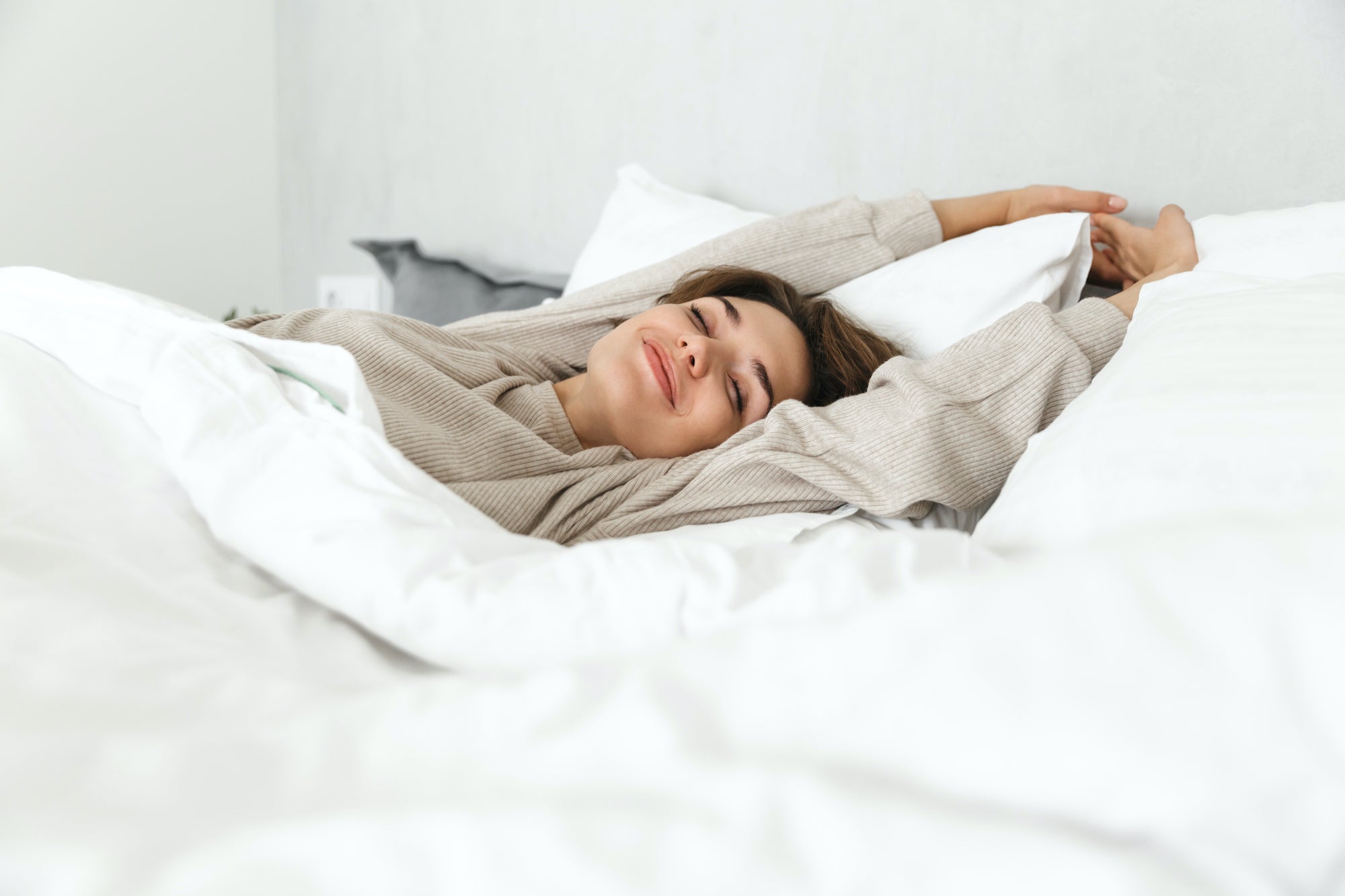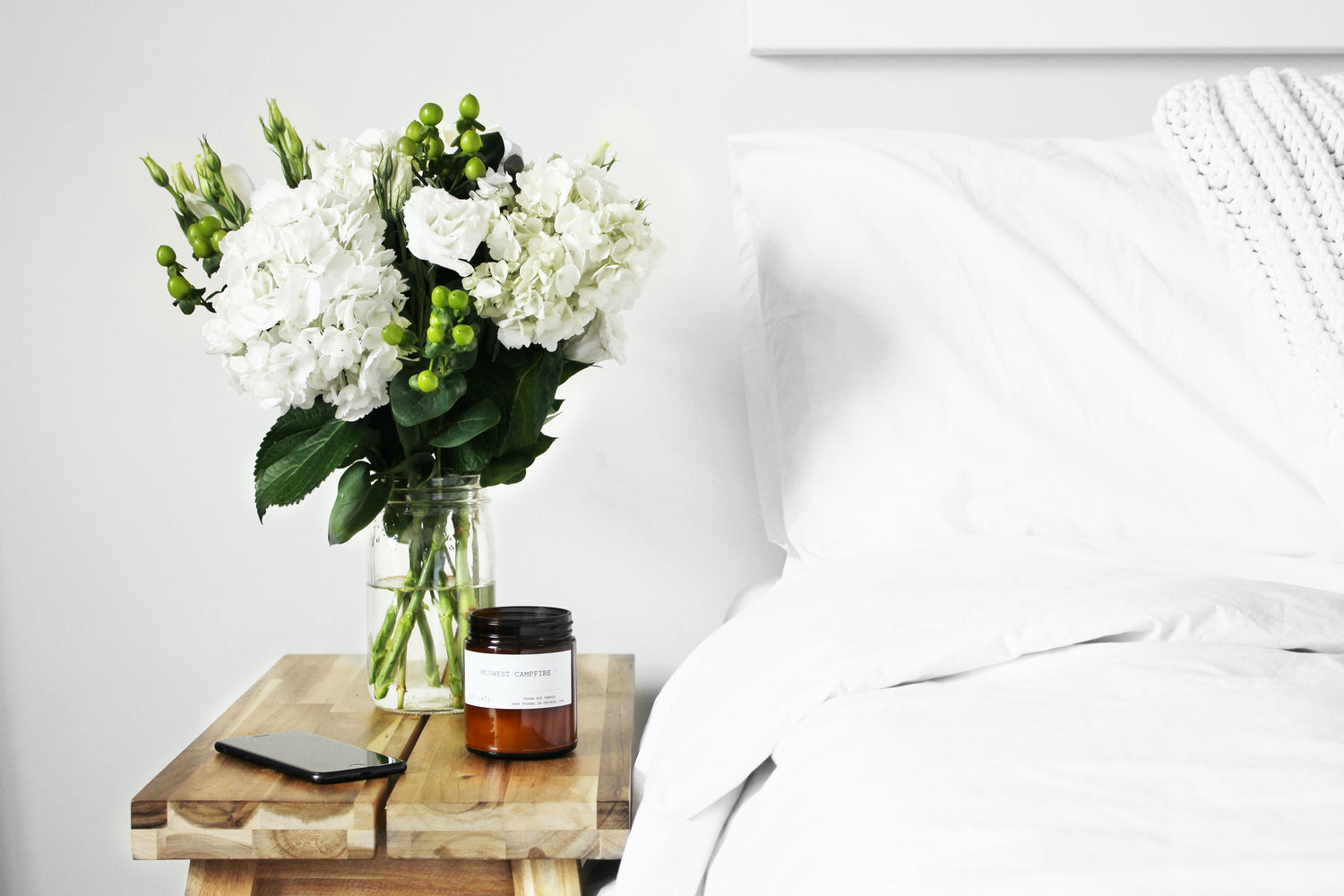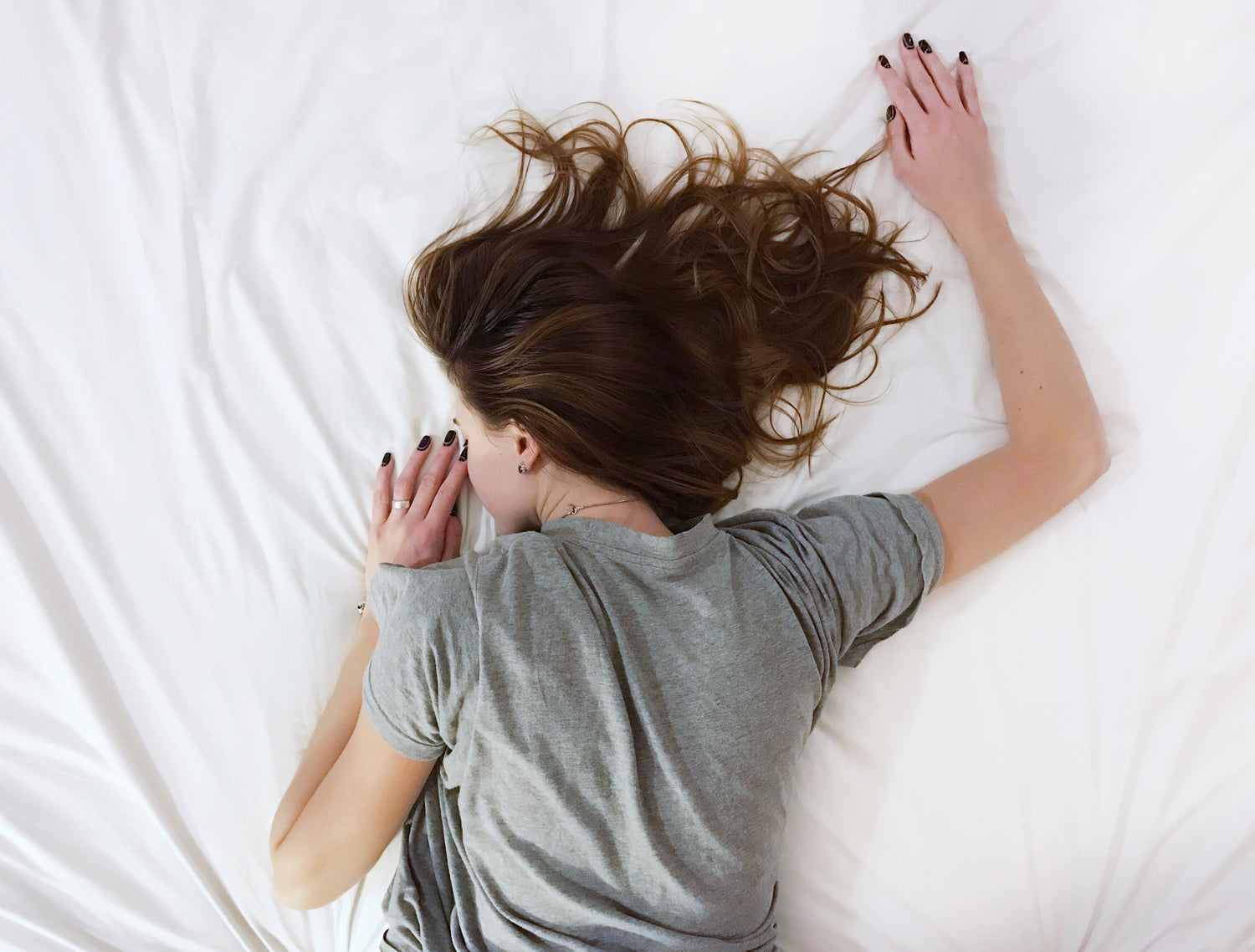For many, napping is a pleasurable, safe activity associated with cozy afternoons. However, when it comes to the science behind taking a nap, there are conflicting views on the subject. On one side, napping is considered a recharge for the mind and body. On the other side, it is considered a potential threat to our sleeping routine.
It’s not that simple. A lot comes down to what motivates your naps and how you approach them. In this guide, we discuss the potential benefits of napping, as well as any downsides they may have. We’ll also provide some tips on good sleep hygiene and the best way to include a healthy nap in your schedule.
The upsides of a nap
To understand the urge to nap, we need to understand the urge to sleep. This urge is known as the homeostatic sleep drive. This drive is higher or lower depending on how much sleep we get. For instance, the urge is lower when we had a full night’s rest, and higher when we didn’t get to sleep enough. The urge naturally progresses along the day and builds up as we go along.
The advantages of napping are still being researched, but preliminary findings argue that a nap can be a good way of regulating the homeostatic sleep drive while also providing upsides for your mental and physical health. Let’s take a look at some of them, according to the National Sleep Foundation.
Helps your memory
Sleeping helps to consolidate memories. Taking a nap can help you retain any new things you’ve learned during the day.
Emotional regulation
A good nap may be helpful in keeping your emotions in check as it helps regulate anger and fear.
Forging creativity
A nap can also be helpful in making connections between different concepts as you sleep. This is increased further if you nap long enough to reach REM sleep.
Boosts recovery
If you are ill, napping can be an ally as it helps your body to garner the necessary energy to fight viral or bacterial infections.
Athletic performance
Athletes may profit from taking regular naps. Studies show that athletes who got ten hours of sleep a day showed improvements in performance, and naps were part of this schedule.
Improved reaction time and mood were among the benefits for athletic performance, and even if you are not an athlete you may still benefit from the same advantages if you lead a high-paced lifestyle.
The downside of napping
We’ve covered some of the potential benefits of napping, now it is time to visit the other side of the debate. Napping can have serious drawbacks. Sleep inertia is one, which refers to a state that borders the state of being awake and asleep, where you feel exhausted and sluggish, making it harder to move and continue with your day.
Sleep inertia is something that you can go through after any sleep state, night or day. However, if you suffer from it after a nap it can be quite disruptive for the rest of your day since you are expected to be fully awake for professional or daily activities. Sleep inertia can have harrowing effects on executive functions, which influence cognitive performance.
Another area where napping can have a negative impact is on your sleep schedule and sleep quality. A study conducted in 2010 observed two hundred and twenty middle-aged men and women who frequently napped. The study concluded that napping could lead to a decrease in the time spent sleeping overnight, an increase in daytime sluggishness, a tendency to suffer from pain and fatigue, and weight gain.
If that wasn’t enough, the study also suggested that napping and insufficient sleep during the night could turn into a vicious cycle since napping leads to less sleep quality at night, that in turn leads to napping the next day because of nighttime sleep deprivation.
Why am I tired during the day?
Not every time you feel like napping means you had a bad night. There are other reasons involved that may explain this urge. Let's see some of them!
Insomnia
We've all experienced insomnia at one point in our lives. Simply put, it is a condition where it's difficult to fall asleep or stay asleep. There are a lot of factors that contribute to it and usually it is short-term, although it can be chronic.
Sleep apnea
Sleep apnea is a common sleep disorder where your upper airway becomes obstructed, which leads to pauses in your breathing that can alter your sleep cycle.
Bruxism
Grinding your teeth while you sleep is called bruxism. It usually happens unconsciously and exerts pressure on the jaw.
Restless leg syndrome
Restless leg syndrome is a disorder that causes a feeling of discomfort in your leg, which prompts you to move it. This feeling is more disturbing while resting.
These are just some of the conditions that may interfere with your sleeping cycle, but there are many other possible contenders to interrupted sleep. Be sure to check with a professional of sleep medicine if you suffer from sleep dysfunction.
Napping types
A huge component of napping is how you do it. So let's take a look at a few different types of napping.
Power naps
The power nap is short and precise, lasting no more than half an hour. It's a great nap for functioning adults.
Recovery naps
Also known as restorative naps, these mid-day sleep bouts are those you take to compensate for a night where you didn't get enough deep sleep.
Prophylactic naps
This type of nap is the reverse of the recovery nap. If you know you are not going to get a good night of sleep, you take a cautionary nap to make up for it. It is a very common practice among people that work night shifts.
Essential naps
These daytime naps are essential for convalescent patients. They are used to boost recovery.
How to take full advantage of a nap
Let's take a look at a few tips to reap the full advantages of a mid-day sleep bout. The first thing you have to do is think about why you are napping. Is it about being rested for a long shift? Is it about restoring some energy on a demanding day? Is it to make up for lost sleep? Having a clear answer to these questions is essential for a successful nap.
Another key element is location. A great nap takes place in a silent, dark, and cool environment. Our bedroom at home is the ideal environment for a good nap, but since we aren’t at home all the time, it is important to have a few tricks to make the most of it if you ever need to nap at your office or car. It is always helpful to carry earplugs and eye masks to protect yourself from unnecessary distractions that may interrupt your sleep.
An alarm should be set to measure the time of your daytime nap, allowing you to calculate the length so you don’t oversleep. This will help avoid sleep inertia. Your objective should be a short nap that takes it no further than slow wave sleep, non-REM phase. Any alarm clock will do, your cellphone is a convenient option.
If you are having trouble falling asleep due to the stress of the day, try some meditation or breathing exercises to calm yourself down. This practice may be helpful in relaxing your mind and muscles for a good afternoon nap.
Another important aspect to pay attention to is the time of day. Ideally, you should try napping before breaching the hour between the time you usually wake up and the time you go to bed. This is convenient because sleeping beyond that threshold can disrupt your sleeping schedule, making it harder to fall asleep later on.
Lastly, if you feel a little sluggish after your nap, there are a few solutions to wake up. Going for a quick walk under the sun can help in restoring your circadian rhythm. A caffeinated beverage or washing your face with cold water can act as a quick response. Any of these actions can help you get back on track.
So, is napping good or bad for you?
As we’ve explained, there is no clear-cut answer. Some studies show that napping can have great benefits on your life, while others point out a series of issues that go hand in hand with the practice.
The common ground is that napping daily might not be the most appropriate way to deal with a disrupted sleep schedule. It is very important to check with a professional if you are experiencing difficulties in your sleeping cycle.
Napping may be appropriate for you if you work during the night or occasionally need to compensate for a night out. If you find that you need to take a nap every day, it would be better to consult with an M.D to discard any sleep disorders or medical conditions.
The best scenario would be to ensure a good night’s sleep that leaves you rested and ready for the day, taking naps as an alternative for occasional boosts or compensations. With that objective in mind, we’ll leave you with a couple of tips to improve your sleep hygiene.
Tips for sleep hygiene
Sleep hygiene refers to the habits you take on for sleeping. If you take proper care of your sleep hygiene it increases the quality of your sleep. We are going to go through some tips to optimize your sleeping hygiene.
1. Set-up your bedroom for success
A great way to improve your sleep is by taking care of your bedroom. Try to make your space as relaxing as you can, make it as silent, dark and cool as possible. Black-out curtains are great at blocking sunlight and breathable sheets can help in preventing sweating and overheating. It is vital to have a quality sheet set in your bed-- they are your best allies for sleep comfort. We recommend that you take a look at Mellanni’s catalogue, which has a diverse collection of sheet sets to satisfy your every need.
For cotton sheets, nothing beats Mellanni’s 100% Organic Cotton 400 Thread Count Bed Sheet Set. Made with 100% Certified Organic, long-staple combed cotton, this set is as cozy as it gets. It is as luxurious as it is comfortable and maintains a perfect combination of softness with a touch of crispness.
Mellanni is all about diversity and we understand that no one fabric suits all. If you are not into cotton sheets, try our 1800 Collection Microfiber Sheet Set. They are made with the highest quality double-brushed microfiber, so you know they are as durable as they are soft.
Everyone has different needs when it comes to sleeping, so we’d like to present an option that is ideal for hot sleepers. Our 100% Flax Linen Bed Sheet Set is famously breathable. The natural linen fibers wick away moisture to regulate your body temperature while you sleep, resulting in dryer sheets that keep you fresh and cool for a great night.
2. Put down your phone
Avoid electronic devices like cellphones or tablets before going to bed. The light from these devices may affect your circadian rhythm, so quit using them for an hour or two before sleeping.
3. Avoid caffeine
Don't consume any caffeinated products for at least six hours before going to bed. Take care to notice that coffee is not the only beverage or snack that contains caffeine.
4. A good routine is key
Try sticking to a sleeping routine. Studies show that you are better at waking up when you stick to a consistent schedule. Try going to bed and waking up at the same time, your body will thank you for it.
5. Get comfortable
Find a mattress that suits your needs. If you don’t have a preference for firmness, look for a mattress that is not too soft and not too hard. Also, take into account if you are a side sleeper or a back sleeper.
Apply the same logic to your pillow. Depending on your favorite sleeping position you may benefit from a thicker or thinner pillow. Mellanni offers a variety of pillows, catered to every need. Consider a body pillow to ensure maximum comfort. We recommend taking a look at Mellanni's Premium Body Pillow if you want proper support for your body. It’s great for amplifying comfort and relaxation and you can use them for sleeping and different activities, like reading a book or watching TV in bed.
Consider investing in a nice duvet and coverlet. A duvet is a great addition to the bed, both for sleeping under or napping on. Take a look at Mellanni’s collection of coverlets and duvet covers, you’ll surely find what you are looking for!




